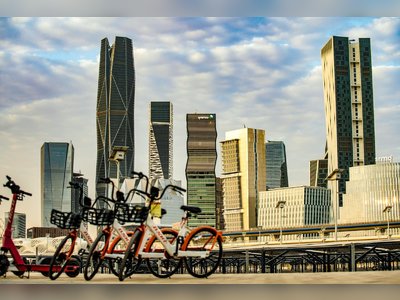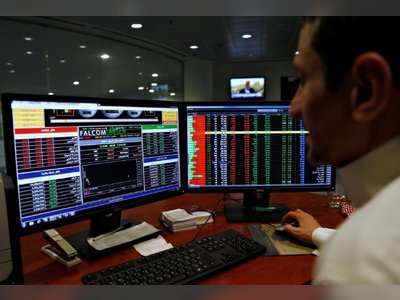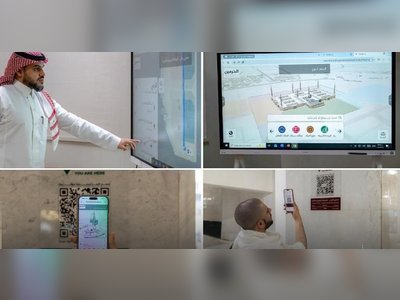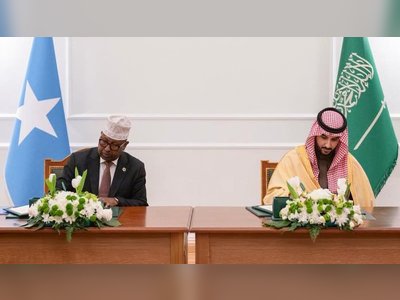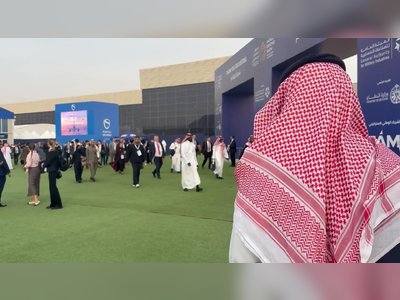
Can we produce drinking water without leaving a carbon footprint?
Bordered by sea on its eastern and western coastlines, Saudi Arabia’s parched landscape is one of the hottest and driest places on earth. The lines “Water, water every where, Nor any drop to drink” spring to mind when you consider the challenges facing this arid nation.
Precipitation averages at just three inches in a year in the capital Riyadh, while some pockets of the country may not see rain for a decade or more. In summer, temperatures within its cities regularly breach 40C, soaring to 55C out in the desert. The country has no lakes or rivers, and its underground aquifers are rapidly depleting.
Needless to say, Saudi Arabia understands the value of water all too well.
But unlike the lost and despairing mariners in Coleridge’s famous poem, “The Rime of the Ancient Mariner”, Saudi scientists have harnessed the salty seawater around them through desalination. Now, as the world’s biggest producer of desalinated water, they are forging towards a future where this essential resource is both affordable and sustainable.
Zero carbon desalination
Traditionally, desalination has been achieved through distillation, where seawater is heated up to separate the drinkable liquid from salts and other contaminants. The process is not only energy intensive but also expensive.
But this all changed in 2016, when the Crown Prince Mohammed bin Salman announced Vision 2030, a strategic plan that sought to improve life in every part of Saudi society. It included a number of sustainability pledges – such as increasing energy from renewable sources and reducing carbon emissions – which now form part of the Saudi Green Initiative.
The trickle down effect was seen everywhere, but especially in the country’s water industry. Leading the charge has been the Saline Water Conversion Corporation (SWCC), the corporation that produces around 70 per cent of the Kingdom’s desalinated water.
The SWCC launched a programme to replace the thermal distillation technology at its plants with reverse osmosis, a more energy efficient process that forces salty water through fine membrane filters. Compared to distillation, this method typically uses just a quarter of the energy to produce the same amount of water, according to the SWCC.
Despite our achievements so far, we still have the drive to do better
The corporation has also introduced newer membrane filtration technology – developed by scientists based in Saudi Arabia – to halve the amount of energy used according to SWCC’s consulting engineer, Nikolay Voutchkov. It’s so effective in fact, the SWCC set a new Guinness World Record in March 2021, for the world’s lowest energy water desalination plant.
“Despite our achievements so far, we still have the drive to do better,” says Voutchkov.
The SWCC has now set itself targets to halve its energy consumption by the year 2030 and become carbon neutral by the year 2050. Much of this change will come from further improvement to technologies being used in the plants, says Voutchkov. These include improved membrane filtration systems, new energy recovery devices that will reduce waste to virtually zero, and more energy-efficient pumps, which will all contribute to a reduction in the use of fossil fuels.
The SWCC also plans to bring more advanced carbon capture and storage processes into its distillation processes and introduce an extensive tree-planting programme across its sites to encourage the further sequestration of CO2 emissions.
Their desalination plants are being made smarter, too. With the help of AI systems, machines are able to autonomously maximise their energy and chemical use while producing water, says Voutchkov.
Perhaps some of those carbon emissions could also be saved by harnessing the power of the sun – something scientists at Saudi Arabia’s King Abdullah University of Science and Technology (Kaust) have been investigating.
One futuristic proposal being considered is a “solar dome”, which will concentrate the heat from the sun to evaporate seawater and produce freshwater. Similar types of technology are already being used to produce electricity through steam power, but if scientists find it viable for full-scale application, this will be the first time it is used for desalination.
But more realistic prototypes have already been built at Kaust. In one, desalination equipment was combined with solar panels so that the heat generated by these panels could help evaporate seawater. Tests revealed it could produce as much as 1.64l of water per square metre of solar panel surface every hour and that water doesn’t need any further treatment to be used for farming.
Turning brine into a resource
Desalination – even of the low-energy reverse-osmosis variety – comes with another challenge: brine. This by-product has the potential to impact coastal life and ecology, as some desalination plants simply discharge it back to the sea. Indeed, as a country with no lakes or rivers, Saudi Arabia is the world’s biggest producer of brine.
Again, Voutchkov has an ambitious plan: turning the by-product into a resource. “The desalination industry is often challenged on the impact of brine discharges into the marine environment,” he explains. “However, the reality is that today, the desalination industry and regulators have a comprehensive system to predict, monitor and control the potential environmental impacts during all phases of project development and implementation.”
In Saudi Arabia, the discharge from desalination plants is monitored continuously to make sure that the marine environment is preserved and protected, and all waste is treated to an environmentally safe standard, according to Voutchkov.
He adds that brine is rich in minerals, including sodium chloride, magnesium and rubidium, and the extraction of these valuable resources could underpin an entirely new industrial chain.
“The commercial proceeds have the potential to entirely subsidise the cost of water production in Saudi Arabia, as well as leading us towards new sources of renewable energy for the Kingdom,” he says.
Plans are already underway to build a new treatment plant in the Kingdom that will act as a “brine mine”, where minerals and rare metals will be removed from the brine. Sodium chloride, for example, will then be sold to local chlor-alkali companies which produce products such as chlorine and caustic soda.
According to Dr Ahmad Al Amoudi, director of the Institute for Research, Innovation and Desalination Technologies at SWCC, agreements have already been made with several chlor-alkali producing companies in Saudi Arabia to deliver these raw materials once the plant is up and running.
Water is so important for life and we need to protect it for future generations
Dr Al Amoudi’s team are also working with the US Department of Energy on a joint research programme to look at ways to extract rubidium from brine for the purposes of producing environmentally safe energy.
Hydrogel technology
In the fog deserts of Namibia, where rainfall is rare and the fauna are thirsty, ingenuity is rewarded. This is why the fog-basking beetle, a creature no larger than a strawberry, can be seen climbing tall sand dunes and performing handstands. At these water-rich heights, the fog condenses on the beetle’s body and rolls straight into its mouth, completing the successful, seemingly magical extraction of water from the air.
At Kaust, researchers are perfecting a technology that achieves similarly ingenious results. In 2018, Peng Wang and his team at the university’s Water Desalination and Reuse Centre created a hydrogel – a polymer resembling a black, squishy blob – that can capture water from the air for other use or even drinking.
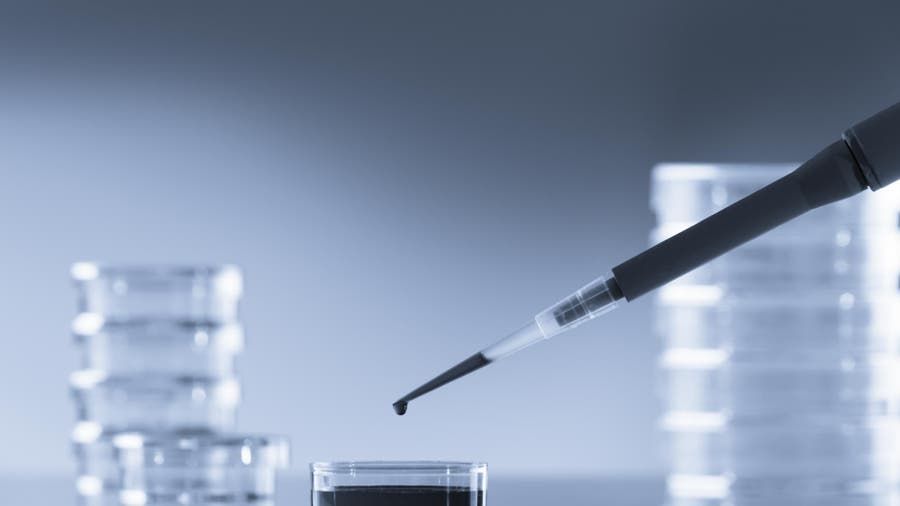 Hydrogel can literally pull water out of thin air
Hydrogel can literally pull water out of thin air
The hydrogel contains calcium chloride, a nontoxic salt that is especially thirsty; it absorbs water vapour and moisture from the air, and then releases the liquid when exposed to the right conditions.
In Kaust’s prototype tests, 35g of hydrogel captured 37g of water; once it was left outside in sunlight for a few hours, the pure water separated from the gel and was collected. The lab estimated that the collection of 3l of water could cost as little as half a cent daily, a particularly important factor for the country’s less wealthy regions in the years to come.
The next stage was to take the water production from a batch process to a continuous one – a task the team achieved in 2019. And in 2020, the team were able to develop a prototype solar panel that was cooled using water from the hydrogel, an innovation that’s particularly useful in the heat of the Middle East.
It’s a little known fact that as temperatures soar, solar panels actually produce less energy and become more inefficient. In tests, Kaust researchers found that water released by the hydrogel could cool the solar panels by as much as 10C, drastically improving their efficiency.
Renyuan Li, the lead researcher on the project, said when announcing the research results: “We believe this cooling technology can fulfil the requirements of many applications because water vapour is everywhere and this cooling technology is easy to adapt to different scales.
“The technology could be made as small as several millimetres for electronic devices, hundreds of square meters for a building, or even larger for passive cooling of power plants.”
The future of water
As the effects of climate change increase, resources such as water will only become more valuable, meaning it’s more important than ever to produce it cheaply and sustainably. And the research and innovations already happening in Saudi Arabia could be a model that could be replicated in other water scarce parts of the world.
As Dr Al Amoudi says: “Water is so important for life and we need to protect it for future generations.”


